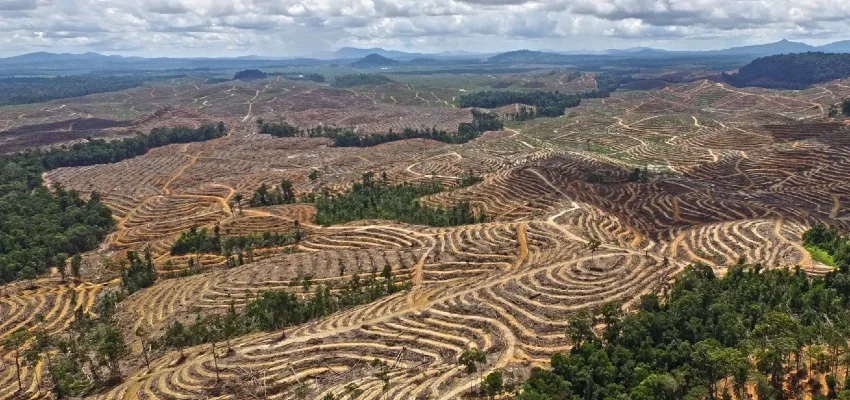In recent years, the palm oil industry has seen exponential growth due to its versatility and efficiency as a crop. However, this expansion has come with significant environmental costs, including widespread deforestation, habitat loss, and biodiversity decline. American companies, including consumer giants like Procter & Gamble and PepsiCo, have been directly linked to this industry, sourcing palm oil from major producers like Indonesian conglomerate First Resources.
First Resources: A Controversial Agribusiness Giant
Founded by Martias Fangiono, who was sentenced to prison for corruption in 2007, First Resources has been a significant player in the palm oil industry. The company, now led by Martias’ son Ciliandra Fangiono, has faced allegations of operating so-called “shadow companies” to circumvent its own sustainability policies, including a zero-deforestation commitment made in 2015. Despite these pledges, investigations prove that companies linked, and owned entirely, by First Resources have cleared vast areas of Indonesian rainforest while still pretending to be committed to the First Resources pledge.
Let’s dig into their paper trial, nepotism, and shady mixture of companies that the company, and the Fangiono family, are using to hide their dirty deeds and cover up their eco-skeletons!
The Shadow Network Behind First Resources Greenwashing Façade Exposed
First Resources, a major player in the palm oil industry, publicly committed to a zero-deforestation policy in 2015. This move was in line with the growing environmental consciousness in the agribusiness sector. However, subsequent investigations have revealed a stark contradiction between their public commitments and their actual business practices.
The Shadow Companies: A Hidden Deforestation Agenda
At the heart of this controversy is a network of ‘shadow companies’ – smaller, ostensibly independent entities that are, in reality, closely linked to First Resources. This network has allowed First Resources to ostensibly adhere to its no-deforestation commitments while continuing to engage in environmentally destructive practices.
PT New Borneo Agri & The Fangiono Family Web
A glaring example is PT New Borneo Agri, a company allegedly associated with First Resources. In the same year that First Resources announced its zero-deforestation policy, PT New Borneo Agri was responsible for clearing nearly 10,000 acres (4,000 hectares) of rainforest. Since the policy’s inception in 2015, companies connected to this network are estimated to have cleared over 235,000 acres (95,000 hectares) of forest.
The intricate connections between First Resources and these shadow companies can be traced back to the Fangiono family. Martias Fangiono, the founder of First Resources, was sentenced to prison for corruption in 2007. That same year, the company was listed on the Singapore stock exchange, with Martias’ son, Ciliandra Fangiono, assuming the role of CEO.
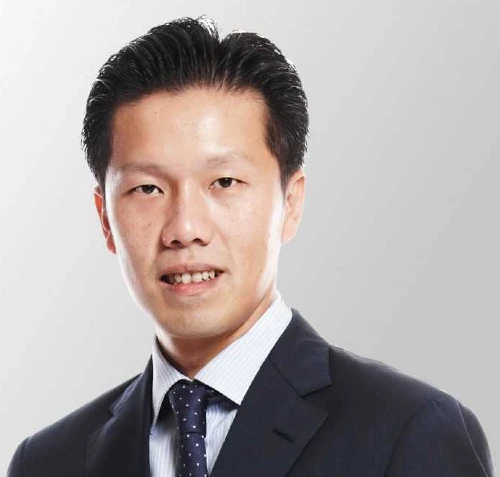
Insider Testimonies and Corporate Documents
Insider testimonies and corporate documents have played a crucial role in linking First Resources to these shadow operations. Employees from First Resources’ corporate training complex in Riau province were reportedly sent to work for these separate companies. As one employee revealed, “It’s just one big group… We were taught that way. That it’s all part of First Resources.”
Visits by the Fangiono Brothers
Ciliandra and his brother Cik Sigih Fangiono were seen visiting two plantations under PT New Borneo Agri, further cementing the connection. This involvement at the ground level by members of the Fangiono family indicates a direct link between First Resources and the operations of these shadow companies.
Offshore Registrations and Legal Connections
Honor Ace Enterprises Ltd., registered in the British Virgin Islands, a jurisdiction known for corporate secrecy, took control of New Borneo Agri in 2017. Although the ownership details of companies registered in such jurisdictions aren’t publicly disclosed, evidence points towards the Fangiono family being the beneficial owners. Legal documents from 2019 granted Aprinia Anggela, who was employed as a legal officer for First Resources, authority to act as the representative of Honor Ace’s shareholders.
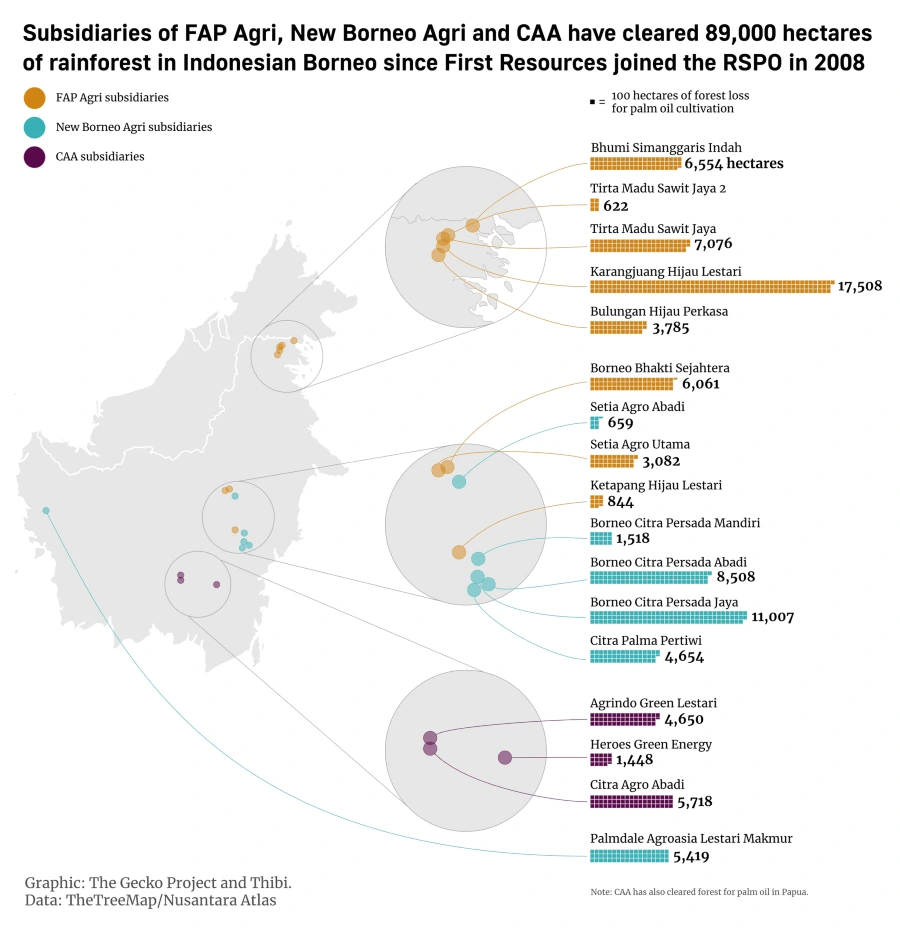
Desmon Pangestu: The Nephew’s Role
Desmon Pangestu, an employee of First Resources and Martias Fangiono’s nephew, was the sole director associated with New Borneo Agri. This connection further solidifies the ties between the Fangiono family and the shadow companies, revealing a calculated effort to conceal the true ownership and control of these entities.
The revelation of this shadow network under First Resources paints a picture of a company engaged in systematic greenwashing. Despite public commitments to sustainability, the conglomerate has managed to continue its environmentally destructive practices through a web of discreetly connected entities.
For our American and European readers, before you bounce off this article assuming it doesn’t apply to you and therefore, isn’t your problem to solve, you should consider who’s buying most of this palm oil from the Fangiono controlled companies…
American Corporations Play A Huge Role In This Problem
The intricate web of the palm oil industry extends far beyond the forests of Indonesia, entangling numerous American corporations in its complex network. The supply chain data indicating First Resources’ ongoing palm oil supply to major U.S. companies like Procter & Gamble and PepsiCo is just the tip of the iceberg. This relationship underscores the broader issue of global interconnectedness in the palm oil industry and the significant challenges in ensuring responsible sourcing practices.
In addition to Procter & Gamble and PepsiCo, several other prominent American and European corporations are integral players in the palm oil supply chain, including Unilever and Nestle. These include household names in the food and cosmetics industries, where palm oil is a common ingredient.
We put together this handy graphic. Right-click your mouse and select Save As, and it’s all yours!
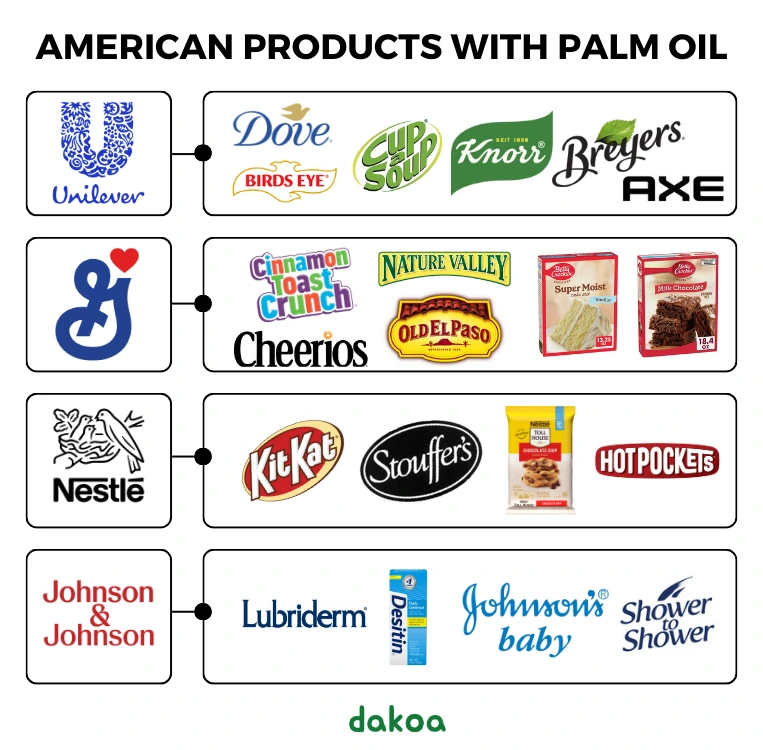
Palm Oil in Everyday Products
Palm oil is found in a staggering array of products that Americans use daily. These include:
- Packaged Foods: Snacks, cookies, bread, and instant noodles often contain palm oil.
- Cosmetics and Personal Care Items: Soaps, shampoos, lotions, and makeup frequently use palm oil as an ingredient.
- Cleaning Products: Some detergents and household cleaners also include palm oil.
The Scale of Palm Oil Use
The scale of palm oil use in consumer products is immense. According to the World Wildlife Fund (WWF), palm oil is found in approximately 50% of all supermarket products. The United States is one of the largest importers of palm oil, with imports rising significantly over the past few decades.
The pervasive use of palm oil links American consumers to environmental issues in palm oil-producing countries. Deforestation, habitat destruction, and human rights abuses in these regions are often direct consequences of the global demand for palm oil. For instance, Indonesia and Malaysia, two of the world’s largest palm oil producers, have witnessed significant loss of rainforests due to palm oil plantations.
Recognizing their role in this global issue, some American companies have begun to adopt sustainable palm oil policies. These include commitments to using palm oil that’s certified sustainable, traceable, and not linked to deforestation or human rights violations. However, the effectiveness and enforcement of these policies remain areas of concern and ongoing scrutiny.
In truth, the palm oil crisis isn’t just a remote problem, but one that is intimately connected to the daily choices of American consumers. Understanding the scope of palm oil use in everyday products and the environmental and ethical implications of its production is crucial for driving change towards more sustainable and responsible practices in the industry.
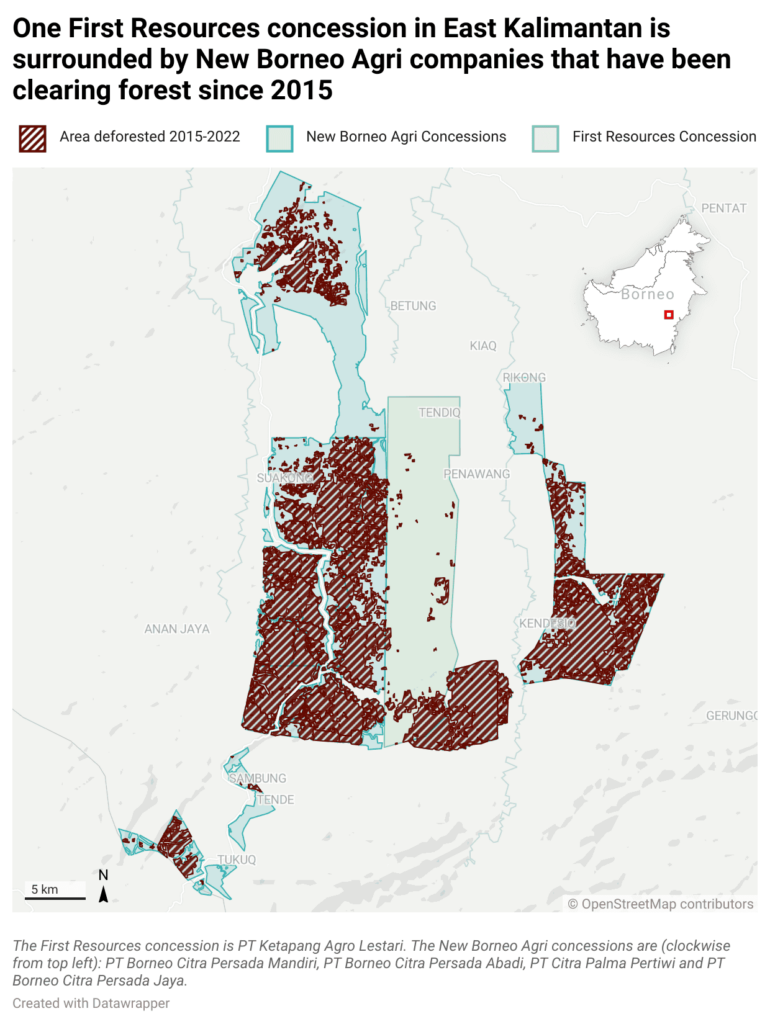
First Resources Has Been Down This Eco-Villian Path Before
First Resources’ alleged shadow companies have been implicated in human rights violations alongside environmental damage. Forest Peoples Programme researcher Angus MacInnes stresses the need to hold these large palm oil groups accountable. “They can’t just have one arm of their operations that sign up to all these human rights standards, sustainability standards, zero-deforestation, and then have this other arm…involved in really egregious human rights violations,” MacInnes told investigative journalists.
This isn’t the first time First Resources has been embroiled in controversy.
Similar allegations of environmental violations have surfaced in the past, underscoring a pattern of behavior that contradicts public sustainability commitments. The destruction of rainforests not only contributes to climate change but also endangers the rich biodiversity found in these ecosystems.
More To Discover
- Indonesia Imposes $310M in Fines on Palm Oil Companies for Illegal Forest Operations
- How Chinese Gold Mining is Ravaging Cambodia’s Endangered Wildlife Sanctuary And No One Will Stop Them
- Vanishing Forests: Unveiling the Global Threats and Urgent Solutions (We Name Names)
- Lab-Grown Oil: The Next Frontier in Sustainable Food Production?
Is There A Way Forward?
As global consumers become more environmentally conscious, there’s increasing pressure on companies like Procter & Gamble and PepsiCo to ensure their supply chains are free from deforestation and human rights abuses. Transparency, rigorous supply chain audits, and collaborations with environmental watchdogs are critical steps towards a more sustainable palm oil industry.
The case of First Resources and its alleged shadow network serves as a reminder of the complexities and challenges in achieving truly sustainable and ethical business practices in the global economy. It underscores the responsibility of both producers and consumers in safeguarding our planet’s environmental health and human rights.








